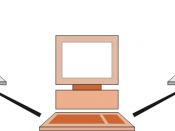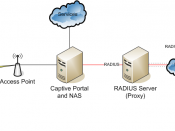With the introduction of internet-chat, hacking and e-commerce into our modern lifestyle, drastic measures to the protection of users' online personal information had to be implemented. But first what is Internet privacy and what are the ethical issues that we face when trying to face problems related to this subject?
Nowadays, privacy on the web has become a necessity to everyone. No matter where you go or what you do, someone could be watching you; your employer, someone trying to hack your system, companies gathering your information to sell to other companies, or even the government, may be on your track while you peacefully surf the web. Thus, anonymity on the web means being able to use all of its services with no concern over someone inquiring on your data.
In a very simple example of an ethical dilemma, it is well known that in order to connect to the internet, any user requires an ISP (internet service provider), which requires personal information of the user.
This information is stored on databases for future reference. It is also common for the ISP's web servers to routinely record information about users' e-mail and web browsing habits. Collecting and storing of such information is a serious encroachment of the user's privacy. The United States Supreme Court has affirmed that American citizens have the protection of the Fourth Amendment (freedom from search and seizure absent warrant) when there is a reasonable expectation of privacy (http://www.consumer.gov/privcg.htm). Yet, under Federal Law it is legal for Officers and Investigators to view such information if they have a warrant. Here is where we have our biggest ethical issue. Much opposition came up against this Law as it was considered an invasion of the privacy of the internet user. Nevertheless, in any criminal investigation it is quite common...


